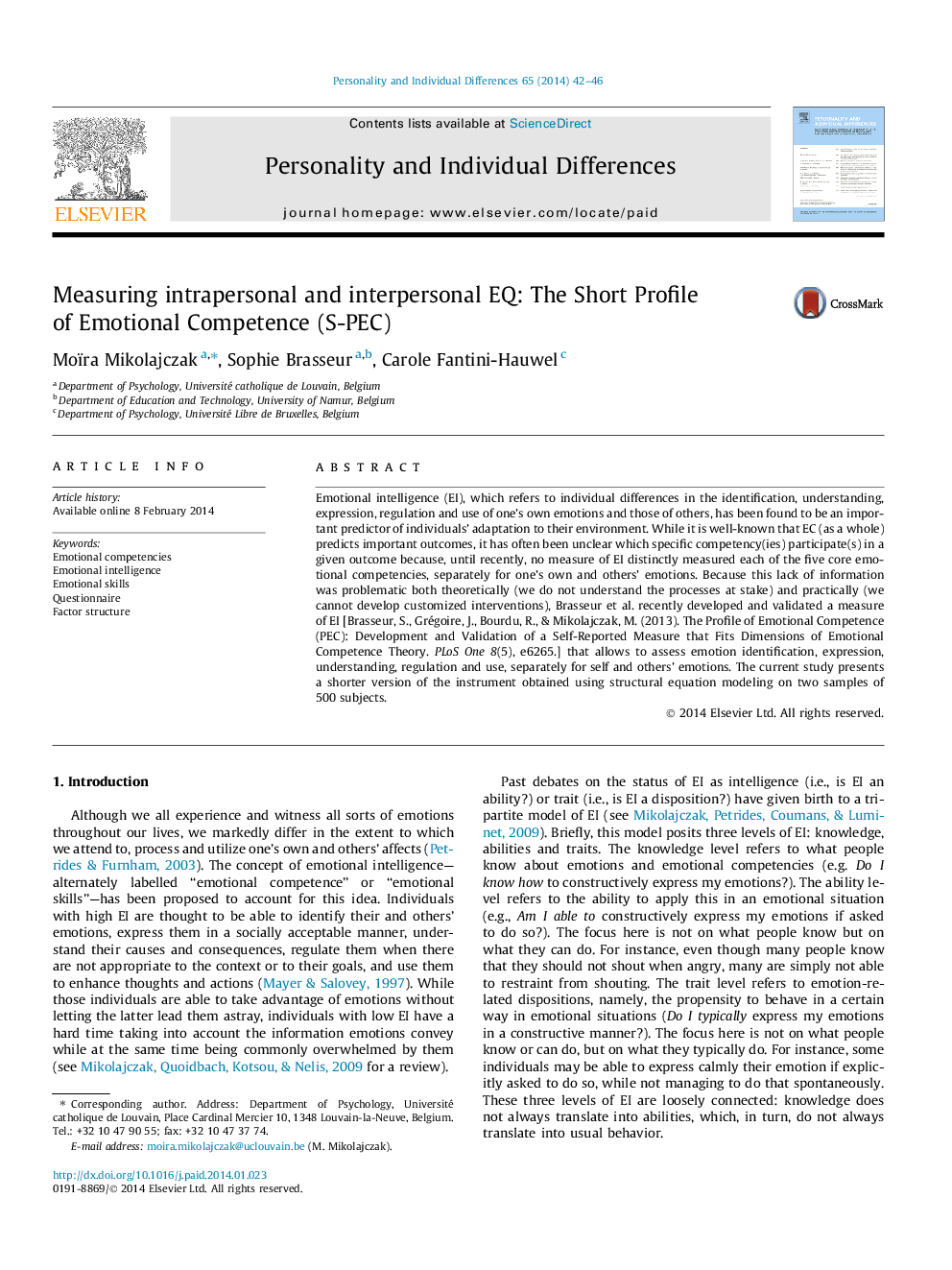| Article ID | Journal | Published Year | Pages | File Type |
|---|---|---|---|---|
| 7252296 | Personality and Individual Differences | 2014 | 5 Pages |
Abstract
Emotional intelligence (EI), which refers to individual differences in the identification, understanding, expression, regulation and use of one's own emotions and those of others, has been found to be an important predictor of individuals' adaptation to their environment. While it is well-known that EC (as a whole) predicts important outcomes, it has often been unclear which specific competency(ies) participate(s) in a given outcome because, until recently, no measure of EI distinctly measured each of the five core emotional competencies, separately for one's own and others' emotions. Because this lack of information was problematic both theoretically (we do not understand the processes at stake) and practically (we cannot develop customized interventions), Brasseur et al. recently developed and validated a measure of EI [Brasseur, S., Grégoire, J., Bourdu, R., & Mikolajczak, M. (2013). The Profile of Emotional Competence (PEC): Development and Validation of a Self-Reported Measure that Fits Dimensions of Emotional Competence Theory. PLoS One 8(5), e6265.] that allows to assess emotion identification, expression, understanding, regulation and use, separately for self and others' emotions. The current study presents a shorter version of the instrument obtained using structural equation modeling on two samples of 500 subjects.
Related Topics
Life Sciences
Neuroscience
Behavioral Neuroscience
Authors
Moïra Mikolajczak, Sophie Brasseur, Carole Fantini-Hauwel,
